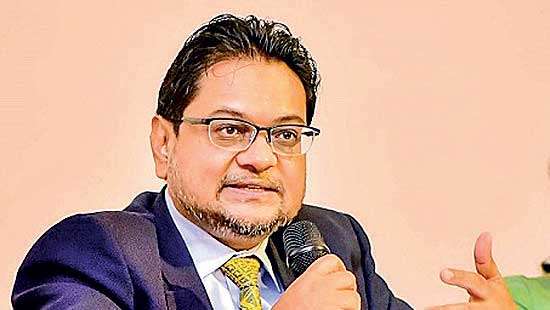Reply To:
Name - Reply Comment


Dr. Nishan de Mel
By Shabiya Ali Ahlam
President Ranil Wickremesinghe openly recognised the 2024 budget as an election-oriented one, though calling it different from previous election budgets. However, the proposals read out on Monday in parliament have garnered an unconventional description - being likened to a fairy tale.
Over the years, national budgets have been labeled in various ways, such as populist, welfare, reformist or even Robin Hood budgets. However, for the first time, the term “fairy tale” is used, possibly reflecting the necessity for a magical set of solutions to achieve the projected revenue.
“The budget is a fairy tale in the sense of promises of revenue that are not grounded in reality, and it’s been the case for three years,” said Dr. Nishan de Mel, Executive Director of Verite Research addressing the CA Sri Lanka post-budget forum held yesterday in Colombo.
According to the budget read out on Monday, the government is heavily depending on Value-Added Tax (VAT) and import taxes to raise the projected revenue.
The VAT estimation has tripled from Rs. 220 billion to Rs.660 billion. “So somebody has to sit down and think, does that make sense? I think it really helps if we do that quickly. Because then we get ourselves into a budget that’s more realistic with policies that are designed proactively to fit the targets and keep the country on a reasonable path,” de Mel said. Looking at data since the year 2000, Sri Lanka has never achieved the revenue targets projected in the national budget. The revenue targets have always been missed by about 10 to 12 percent every year.
To move towards a more corrective path, de Mel suggested that Sri Lanka must change the current culture and habit of budgeting, and focus on improving planning, which in turn will help improve outcomes. Reflecting similar sentiments, Sri Lanka Bankers’ Association (SLBA )Chairman and Standard Chartered Bank Sri Lanka CEO Bingumal Thewarathanthri noted that the revenue growth expected is a bit too optimistic, to the point, that it is unrealistic.
“We don’t see a sudden demand picking up as a result of the disposable income which has come down. Also, we are expecting the external sector to give a 41 percent tax increase because of imports, again the demand will take some time,” he said. While noting that from a stimulating perspective, there is very little room for improvement, he asserted that the elephant in the room is debt restructuring.
“We have to stay on course to cross the debt restructuring and maybe the second half of next year you will see there is a real demand picking up, the first half will be a bit of a slow growth,” said Thewarathanthri. Meanwhile, concerning policy rate cuts, he pointed out that the true challenge lies in reducing the real interest rates.
“The challenge is going into next year due to the revenue. There will also be a lot of domestic borrowing to cover the budget deficit and that will come at a cost,” he said.